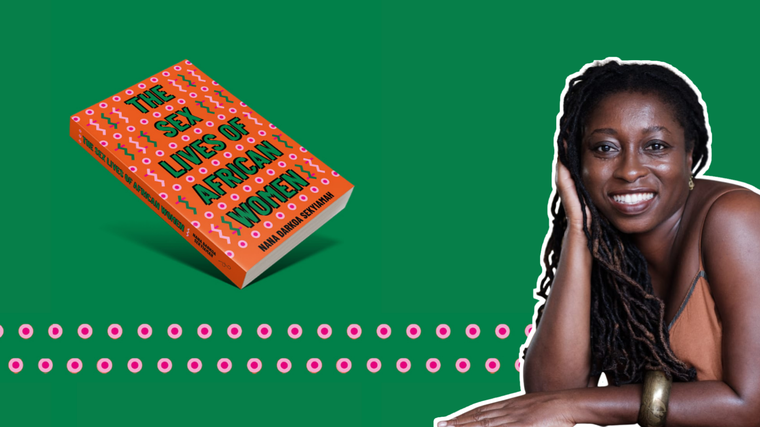
‘The Sex Lives of African Women’: an exhilarating, at times enraging new book
‘We are all on a journey towards sexual freedom,’ says author Nana Darkoa Sekyiamah, giving us a rare glimpse of women’s diverse personal lives

For ten years, Nana Darkoa Sekyiamah has run an extraordinary platform for conversations about sex that centre the pleasure of African women – the blog ‘Adventures from the Bedrooms of African Women’, which she co-founded.
Now, the Ghanaian feminist has published a new book that is similarly extraordinary in making visible the diverse and intricate personal lives of African women that are all too often invisible or silenced.
‘The Sex Lives of African Women’, published in the UK this week, traverses the African continent and its diaspora communities. Its stories are raw, unencumbered, exhilarating and, at times, enraging.
More than 30 women (most using pseudonyms) give us rare insights into how they navigate, negotiate and enjoy sex, sexuality and relationships across generations and borders. Among them are monogamous, polyamorous, kinky, queer, transgender and celibate stories. This makes Darkoa’s book groundbreaking in showing the diverse sexualities of African women.
Sex is still a taboo topic in most African countries and communities; the stories Darkoa shares challenge dominant beliefs and encourage readers to stretch their imaginations in terms of the journey to sexual freedom. They also reveal how efforts to control women’s sexuality affect their safety and sense of self.
A good kind of uncertainty
From the story of one woman in an unhealthy and violent relationship to another in a caring marriage who feels that something is missing, Darkoa’s book reminds women that we should unsettle that which we thought was long settled. It embraces the good kind of uncertainty, that we need to work towards a better knowledge of ourselves and our desires – and to unlearn the ‘rules’ set by societies, states, religions and cultures on what is ‘normal’.
These women are in movement – literally or metaphorically, including towards and away from lovers, relationships and community. Some of them also move in and out of social classes, with varying degrees of ease.
“Most of the women interviewed were of a middle-class background, which is obviously a limitation,” Darkoa acknowledged in an interview with me. Using the internet to find stories contributed to this; fewer than one in five sub-Saharan Africans use the internet, according to figures from 2017.
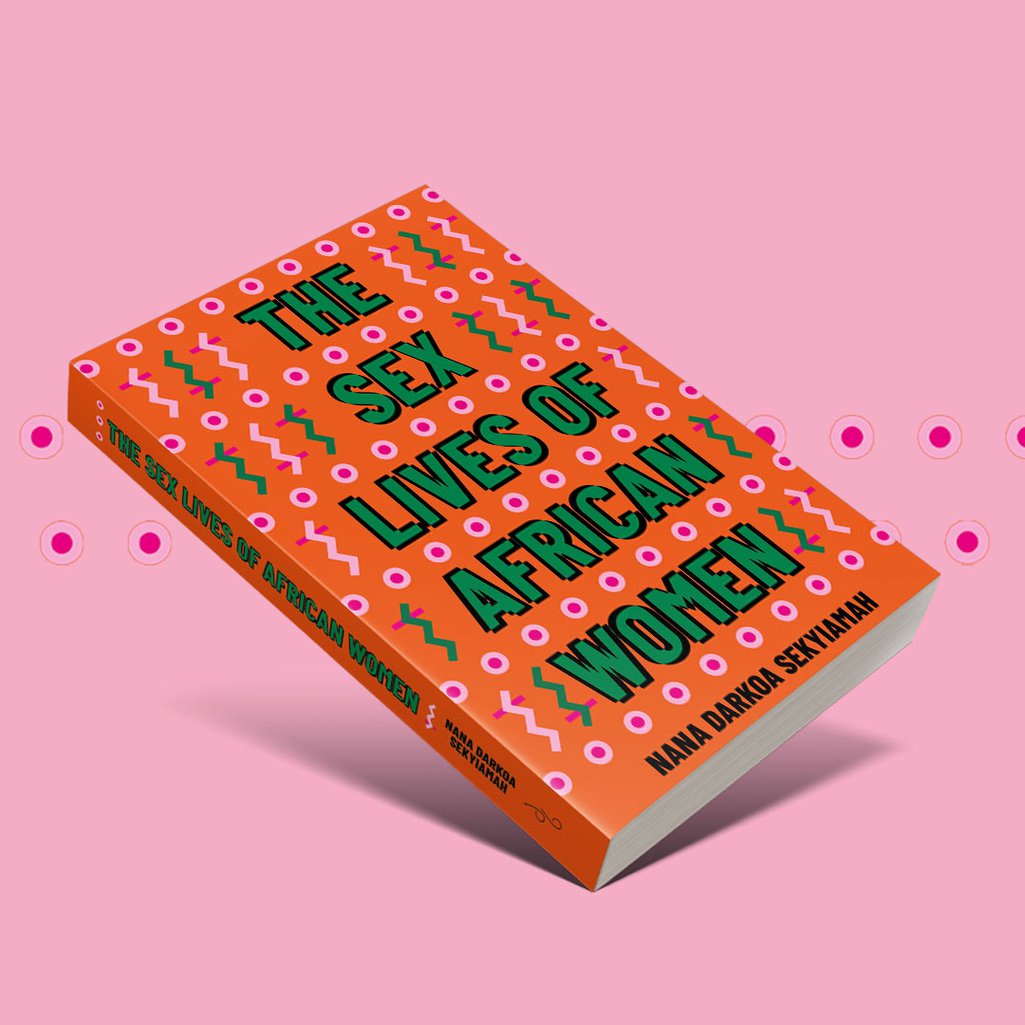
Most of the women featured in the book live in a city, country or continent that is different from where they were born and raised. ‘Home’ means different things for them at different times, with each place bringing its own freedoms, restrictions and awakenings. They are acutely aware of how their Africanness and sexuality are seen, and how that can affect their choices.
‘Kuchenga’, a Black British trans woman of Jamaican and Zimbabwean origin, shares her struggles with employment, despite what she calls her education at a “white middle-class school with left-wing bourgeois kids”.
“I have had a lot of access to straight white men,” she says. “They don’t want me, a Black trans woman. Even in those circumstances where I have been given an interview [for work], I could see the disdain written on their faces.”
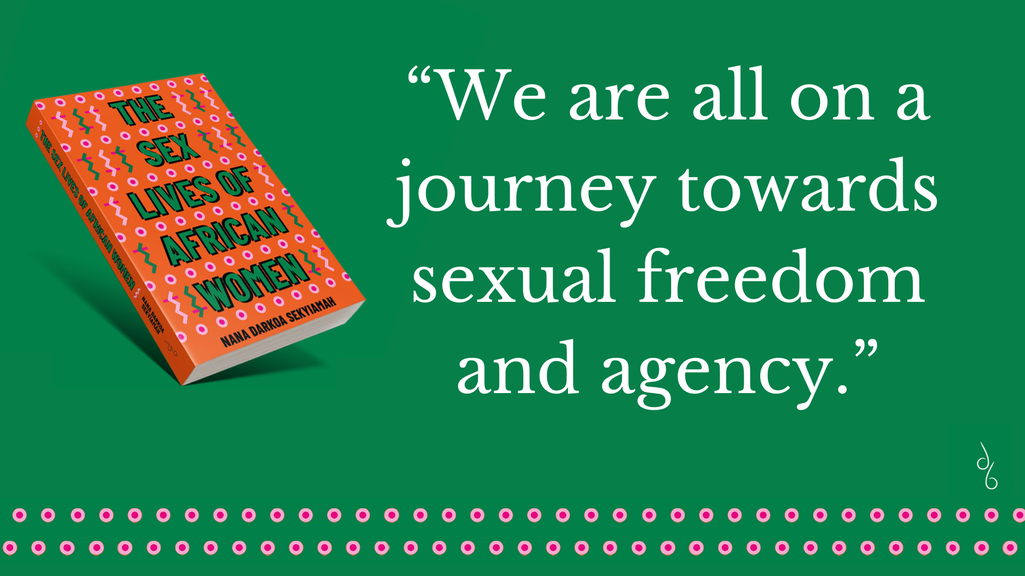
‘Solange’, a 46-year-old queer trans woman, recalls moving to Canada, where she could medically transition to live in her gender identity. “I realised that I needed to live my life for myself and that not being in accordance with my true self was the real sin,” she says. “It took me 25 years and being far away from Rwanda, and my family, to have this realisation.”
‘Estelle’, a pansexual cis woman of mixed African and Arab heritage, who grew up between Ghana and the UK, remembers: “From a young age, I was desired by boys and men, who saw me as beautiful because of my light skin and facial features [...] It didn’t matter that I grew up hating myself because I wanted to look more African; I felt that would make me a whole person, rather than someone who didn’t know whether they were Arab or African.”
“We are all on a journey towards sexual freedom and agency,” Darkoa declares in the book’s opening chapter. She presents sexuality as a source of both pleasure and pain – from patriarchal societies and religious dogma that leave many women doubtful of their own choices and constantly fighting guilt.
Control and courage
Progress in ensuring that girls and women have bodily autonomy and agency has been slow. Fewer than half of women in Africa aged 15 to 49 make their own decisions about their sexual and reproductive health and rights (including about their own healthcare, the use of contraception and when to say no to sex), according to research from the international agency UNFPA.
Fear and shame are not threats to autonomy that the women in Darkoa’s book manage to conquer once and for all; they can creep in unexpectedly, and resisting them is an ongoing struggle. From Rastafarian men denying women pleasure, to the policing of Muslim women’s clothing, to conservative Christianity's constant reminders of sin and hell, the grip on women’s bodies and sexuality includes the combined power of religion and patriarchy.
‘Bibi’, a Nigerian woman, overcame her strict Christian evangelist upbringing and mustered the courage to have sex before marriage, at the age of 32. “I had managed to do this in spite of all the voices in my head, in spite of the repression, in spite of a sense of shame,” she says, amazed by herself.
Some women connect their relationships and spirituality. “Sensuality and spirituality are two sides of the same coin, and I wanted to be with a partner I could learn the faith with, from a place of curiosity, and not oppression,” says ‘Nura’, a Kenyan Muslim convert who married a Senegalese man whom she met on a dating app and with whom she lives, along with his two wives.
‘Chantale’, in Haiti, describes herself as a same-gender-loving person looking to connect with the earthiness of sexuality and finding space for this in her ancestral spirituality – Vodou, Haiti’s national and traditional religion.
Pleasure and pain
Self-pleasure helps many women face and resist ‘purity culture’. These stories show that inhibiting human sexuality in whatever form is always contested. The women discover their bodies, and then some also discover the world of sex toys, BDSM and other ways to take back their power.
Cyber-dating appears in many of the stories. ‘Amina’, a Sudanese lesbian in Cairo, describes how she discovered that her feelings and her sexuality were valid and also ‘normal’ through the internet.
‘Elizabeth’, a wheelchair user of Nigerian-Scottish heritage, recalls with humour some of the tricky questions that have come up when dating online. “I always jokingly tell men, the only thing I can’t do is stand up and have sex,” she says. “Besides, when was the last time you had sex standing up?”
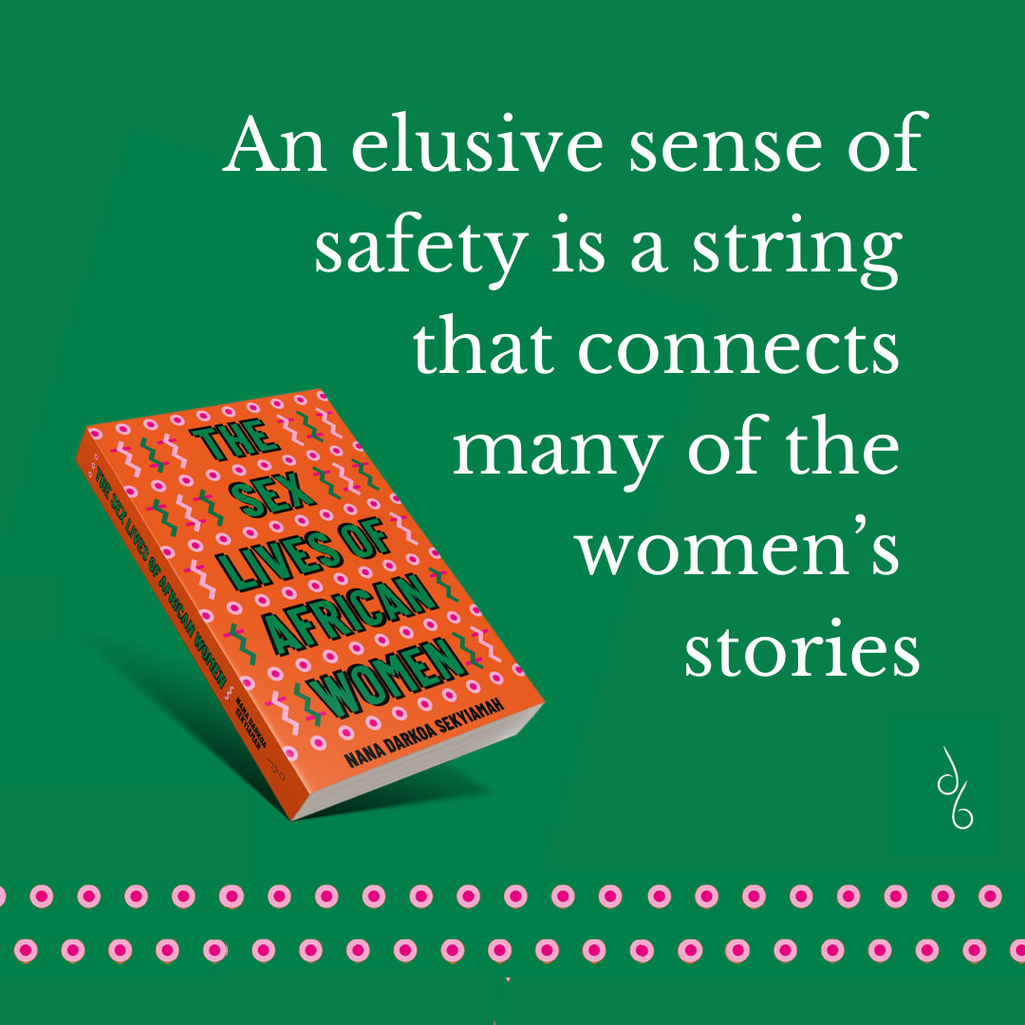
There are other moments of levity in the book, but also pain. “I have always known that a lot of women were abused as children,” Darkoa told me, but “what surprised me was how many women have experienced child sexual abuse in various shapes and forms. That was a shock.”
Such abuse is often followed by silencing, bullying at school, harassment and more abuse. The stories describe how male violence, heteronormativity, classism and racism often converge and impact African women. An elusive sense of safety is a string that connects many of them.
‘Warris’ tells a haunting story of her experience of sexual abuse in the form of female genital mutilation (FGM, or ’cutting’) in Somalia, which resulted in enduring trauma and difficulties trusting Black women because of that harm. The book also explores what it means to walk this world as a woman living with HIV, facing ongoing stigma and discrimination. HIV and AIDS remains an epidemic in Africa, disproportionately affecting women.
The stories also challenge the continued criminalisation of sex work in most African countries. The women’s realities emphatically remind us that sex work is work and that lives are endangered when we ignore people at the margins.
Race and sexuality
How race and sexuality intersect is, unsurprisingly, another key theme.
‘Yami’ – a 30-year-old pansexual person of Malawian origin now living in Canada – speaks about Black parenting ahead of having IVF treatment. “For me, it is important to have Black children. It is political,” they say. “In a world that continues to erase Black people [...] birth is a radical act against state sanction, the prison industrial complex and violence against Black bodies.”
Alexis, a 71-year-old queer Black feminist from Harlem, New York, shares her experience of finding love in her sixties – a story that also challenges common portrayals or assumptions that older women are asexual.
Amid organised opposition to queerness in Africa, both its historical existence and now, Darkoa brings to life stories and voices that root us in reality.
“A lot of women are still judged for their sexual choices. A lot of shame is even attached to those experiences where we don’t have a choice, like child sexual abuse,” she told me. She hopes that sharing these stories can awaken societies to create “space for sexual diversity [...] and also make it very clear that if you are sexually abused, it is not your fault”.
You can buy ‘The Sex Lives of African Women’ from the following affiliate book stores:
Read more
Get our weekly email
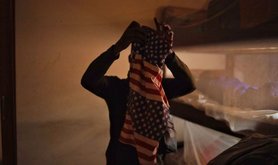

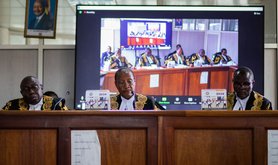
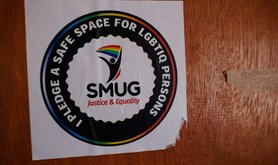
Comments
We encourage anyone to comment, please consult the oD commenting guidelines if you have any questions.